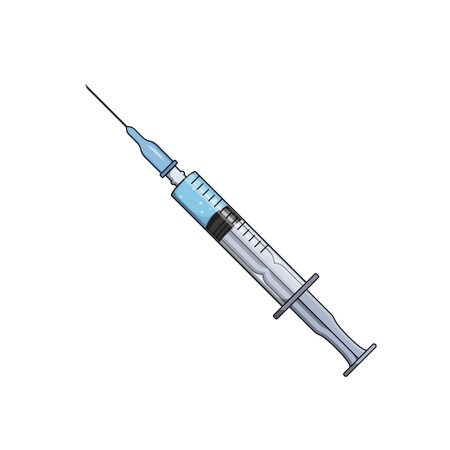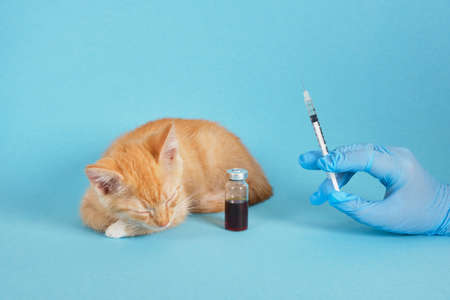Introduction to Pet Vaccination in the UK
Pet vaccinations play a vital role in both public and animal health across the United Kingdom. As responsible pet owners, ensuring our companions receive appropriate vaccines not only protects their wellbeing but also helps safeguard the wider community from preventable diseases. In the UK, pets such as dogs, cats, and even exotic species like ferrets and rabbits are at risk of contracting infectious illnesses, some of which can be transmitted to humans. Local regulations and veterinary guidelines have been established to promote regular vaccination schedules, aiming to reduce outbreaks and support herd immunity. Understanding the importance of these measures is essential for every owner who wishes to provide the best care for their animals while complying with national standards. Whether you’re keeping a rare reptile or a beloved British Shorthair, staying informed about vaccination requirements is an integral part of responsible pet stewardship.
Understanding UK Pet Vaccination Laws
In the United Kingdom, pet owners are expected to adhere to a range of statutory requirements and government guidelines regarding animal vaccinations. These regulations are designed to safeguard not only pets but also public health, local wildlife, and livestock. The principal legislative framework is shaped by several key acts and guidance documents issued by both national and devolved authorities. Below is a summary of the core legal obligations and official recommendations for pet vaccinations in the UK:
Key Acts and Regulations
| Legislation/Guideline | Scope & Application | Relevant Authorities |
|---|---|---|
| Animal Health Act 1981 | Empowers authorities to control notifiable diseases (e.g., rabies), enforce vaccination during outbreaks, and manage quarantine. | DEFRA, APHA, Local Councils |
| The Rabies (Importation of Dogs, Cats and Other Mammals) Order 1974 | Makes rabies vaccination mandatory for pets entering the UK; outlines quarantine and vaccination protocols for imports. | DEFRA, Border Force |
| PET Travel Scheme (PETS) | Requires certain vaccinations—especially rabies—for pets travelling into or out of the UK, with specific documentation standards. | DEFRA, Veterinary Surgeons |
| Code of Practice for the Welfare of Dogs/Cats (England/Wales/Scotland/Northern Ireland) | Recommends core vaccines as part of responsible pet ownership; not legally binding but influences best practice and RSPCA advice. | Devolved Governments, RSPCA |
Statutory vs. Recommended Vaccinations
While not all pet vaccinations are mandated by law for animals resident within the UK, some are compulsory under specific circumstances—such as rabies for pets travelling abroad or being imported. Core vaccines (like canine parvovirus, distemper, or feline panleukopenia) are strongly advised by veterinary bodies and animal welfare organisations but remain voluntary for most domestic situations. However, failing to vaccinate may breach the broader duty of care outlined in the Animal Welfare Act 2006 if it leads to unnecessary suffering or disease spread.
Navigating Regional Variations
Laws may differ slightly between England, Wales, Scotland, and Northern Ireland due to devolved powers. Owners should consult their local council or vet for region-specific rules, especially concerning licensing or animal boarding establishments which may set their own vaccination requirements.
Summary Table: Typical Pet Vaccination Requirements in the UK
| Situation | Mandatory? | Commonly Required Vaccines |
|---|---|---|
| Domestic Pets (no travel) | No (recommended only) | Distemper, Parvovirus, Leptospirosis (dogs); Feline Herpesvirus & Calicivirus (cats) |
| PETS Travel/Importation | Yes (Rabies) | Rabies (+ microchip & tapeworm treatment for dogs) |
| Kennel/Cattery Boarding | No (but often required by facility) | Bordetella/Kennel Cough (dogs); Feline Leukaemia Virus (cats) |
The legal landscape around pet vaccination in the UK reflects a balance between statutory enforcement where necessary—such as preventing rabies—and promoting best practice through guidance for routine preventative care. Staying informed of current laws helps keep both your unique companions and your community safe.

3. Essential Vaccines for Common and Exotic Pets
Understanding which vaccines are necessary for your pets is crucial for their well-being and compliance with UK regulations. The law primarily addresses core vaccinations for the most commonly kept pets, but awareness is growing about the needs of our more unusual companions. Below is a guide to both core and non-core vaccinations, with particular attention to exotic species that are gaining popularity in British households.
Core Vaccinations for Common Pets
- Dogs: Distemper, parvovirus, infectious canine hepatitis (adenovirus), leptospirosis, and rabies (especially for travel purposes).
- Cats: Feline panleukopenia (enteritis), feline calicivirus, feline herpesvirus (cat flu), and rabies (for those travelling abroad).
- Rabbits: Myxomatosis and Rabbit Haemorrhagic Disease (RHD1 & RHD2) – both are vital due to their prevalence in the UK countryside.
Non-Core Vaccinations for Common Pets
- Dogs: Kennel cough (Bordetella bronchiseptica and canine parainfluenza), Lyme disease, and leptospirosis depending on lifestyle or regional risk.
- Cats: Feline leukaemia virus (FeLV) – especially important for outdoor cats or those in multi-cat households.
Vaccination Considerations for Exotic Pets
The UK’s guidelines on exotic pet vaccination are less defined than those for cats and dogs, mainly due to the vast diversity among species and limited licensed vaccines. However, responsible ownership means staying informed about potential diseases and working closely with an exotics-savvy vet.
Commonly Kept Exotics in the UK & Relevant Vaccines
- Ferrets: Canine distemper vaccine is strongly recommended; rabies vaccine may be required if travelling abroad.
- Pet birds (parrots, canaries): No routine vaccines in the UK, but avian polyomavirus and psittacine beak and feather disease are notable concerns; strict biosecurity is essential.
- Reptiles (snakes, lizards): No approved vaccines; focus remains on quarantine procedures and regular health checks.
A Note on Legal Compliance
While core vaccinations are often mandatory for dogs, cats, and rabbits—especially when boarding or travelling—vaccination protocols for exotics rely heavily on best practice advice from veterinary professionals. Always check local council guidelines and consult an experienced vet to ensure your pets’ immunisation records meet current legal standards.
4. The Vaccination Process and Record-Keeping
Ensuring your pet receives timely vaccinations in accordance with UK laws is vital for both animal welfare and legal compliance. Understanding the vaccination process, maintaining up-to-date records, and collaborating effectively with your local vet are key to responsible pet ownership.
Best Practices for Arranging Vaccinations
Booking your pet’s vaccinations should be straightforward but does require some planning. Most local veterinary practices in the UK offer vaccination appointments, including reminders for booster jabs. It’s best to register your pet with a local vet soon after bringing them home. Arrange vaccinations according to the recommended schedule—these may differ depending on species, breed, age, and health status. For special pets such as ferrets or reptiles, always consult a vet experienced in exotic animals to ensure their unique needs are met.
Typical Vaccination Schedule (Dogs & Cats)
| Pet Type | Initial Vaccination Age | First Booster | Annual Boosters |
|---|---|---|---|
| Dog | 8–10 weeks | 2–4 weeks later | Every year |
| Cat | 9 weeks | 3–4 weeks later | Every year |
Maintaining Accurate Health Records
The UK Animal Welfare Act and DEFRA guidelines recommend keeping detailed health records for each pet. This includes vaccination dates, batch numbers, and any reactions or notes from the vet. Most vets provide a physical vaccination card or digital record—ensure it’s kept safe and updated after every visit. If you’re ever travelling within the UK or abroad (especially under the Pet Travel Scheme), these records are essential for proof of compliance.
Essential Information for Pet Health Records
- Date of vaccination
- Type of vaccine administered
- Vaccine batch/serial number
- Name and signature of administering vet
- Next due date for booster
- Any observed side effects or reactions
Collaborating With Your Local Vet
Your local vet is your first port of call for guidance on UK-specific vaccination requirements and best practice. Regular check-ups allow you to discuss your pet’s lifestyle (e.g., whether they go outdoors or mix with other animals) and tailor a bespoke vaccination plan. Vets also provide advice about additional preventative care—such as parasite control—which often goes hand-in-hand with routine jabs.
5. Consequences of Non-Compliance
Failing to adhere to local UK laws and guidelines on pet vaccinations can have significant legal and practical ramifications for pet owners.
Legal Penalties
In the UK, certain vaccinations are not merely recommended but required by law, especially for pets travelling abroad or those participating in public events. For example, the Rabies vaccination is mandatory under the Pet Travel Scheme (PETS). Non-compliance can result in hefty fines, legal proceedings, and even confiscation or quarantine of the animal. Local councils may also issue penalties if pet owners fail to keep up with compulsory vaccinations specified in their region.
Impact on Animal Welfare
Beyond legal concerns, neglecting to vaccinate pets exposes them—and other animals—to preventable diseases such as parvovirus, distemper, and leptospirosis. Outbreaks in local communities often trace back to unvaccinated animals, putting both pets and wildlife at risk. Veterinary practices across the UK stress that non-compliance endangers herd immunity, making it easier for contagious diseases to spread.
Practical Complications
Lack of proper vaccination documentation can also restrict access to kennels, grooming salons, training classes, and reputable breeders. Insurance providers may void policies if routine vaccinations are not up to date, leaving owners liable for costly treatments.
A Responsible Approach
Ultimately, keeping up with UK vaccination requirements is a fundamental aspect of responsible pet ownership. It demonstrates respect for both community health and animal welfare standards established by British authorities.
6. Local Support and Resources
Finding Trustworthy Information on Pet Vaccinations
For UK pet owners keen to stay compliant with local laws and guidelines, knowing where to turn for reliable advice is essential. The first port of call should always be your local vet, who can provide up-to-date information tailored to your area’s requirements and your animal’s needs. The British Veterinary Association (BVA) and the Royal College of Veterinary Surgeons (RCVS) also offer detailed guidance online about vaccination protocols and legal obligations. For those who enjoy connecting with fellow pet enthusiasts, community-based resources such as local pet owner forums and breed-specific clubs are invaluable for sharing firsthand experiences and tips.
Local Veterinary Services: Your Compliance Partners
Veterinary practices across the UK are not only equipped to administer vaccines but also play a critical role in educating owners about vaccination schedules and any legislative changes. Many clinics offer vaccination reminders by post, email, or text—making it easier than ever to keep your special companion protected. When choosing a vet, look for RCVS-accredited practices to ensure the highest standards of care. Don’t hesitate to ask your vet about regional variations in vaccine recommendations, especially if you travel within the UK or are considering moving counties.
Community Networks and Support Groups
Beyond professional services, responsible pet ownership thrives on strong community support. Local councils often host workshops or events focused on pet health and compliance with UK law—these are excellent opportunities to network with other owners and access expert advice. Online platforms like Nextdoor or Facebook neighbourhood groups frequently have active discussions around pet care, local vaccination clinics, and council updates. Many areas also have charities and animal welfare organisations that can assist with low-cost vaccinations or help you navigate complex regulations, ensuring every exotic or traditional pet receives proper protection.
Practical Tips for Responsible Owners
If you’re ever unsure about your obligations or need guidance on best practices, don’t rely solely on hearsay; consult professionals and trusted official sources. Registering with a local vet as soon as you bring a new pet home is a crucial first step. Keeping all vaccination records in a safe place—digital or physical—will make life easier when proof is needed for licensing, travelling, or boarding. Lastly, engaging regularly with your local pet community not only keeps you informed but enriches the experience of caring for your unique companion in accordance with UK law.

